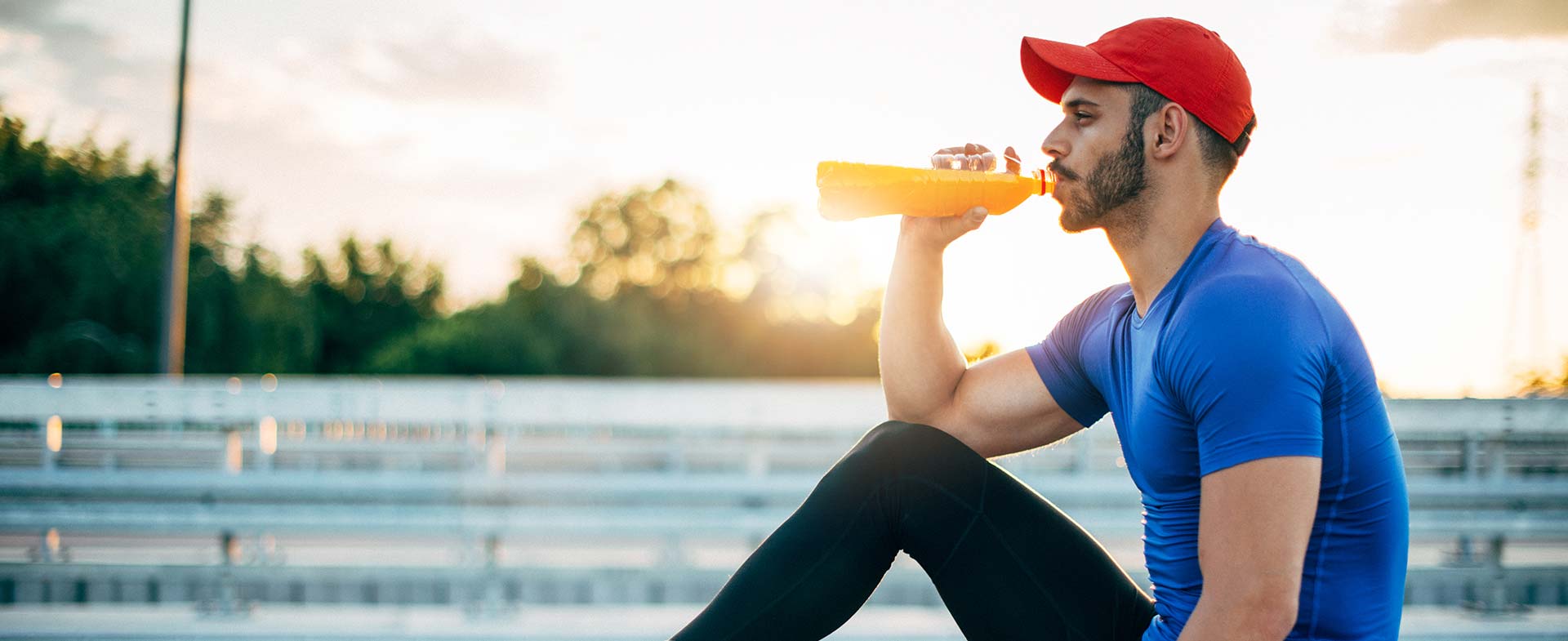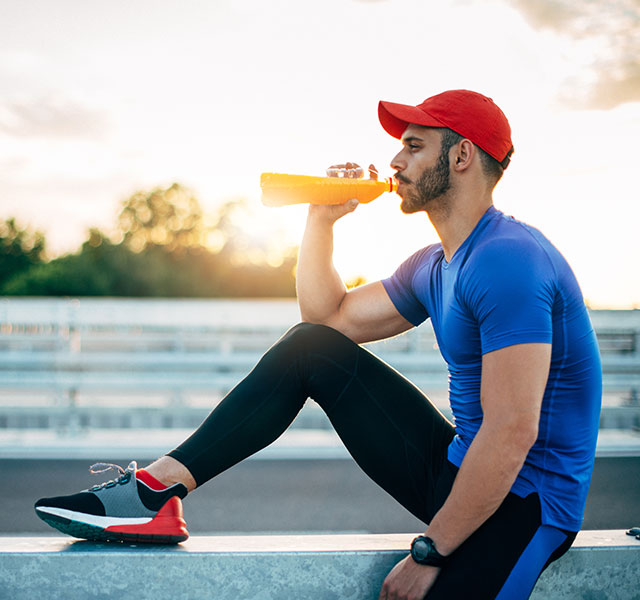If you’re planning to pack your summer with fun, sun and high-energy sports, you might be wondering if you should stock your refrigerator with electrolyte drinks.
“Electrolytes help keep our muscles functioning properly while also maintaining fluid balance in the body,” says Allegra Picano, RDN, a nutritionist at Henry Ford Health. “Since our bodies lose water from heat exposure and exercise, electrolyte drinks are an obvious way to restore that balance.”
These eye-catching neon-colored beverages not only promise high-performance hydration, they’re tasty, too! But are they good for you?
What Are Electrolytes?
Electrolytes are just minerals—found in the foods we eat every day—that help the blood maintain a balance of fluid in the body.
Key electrolytes include:
- Sodium
- Magnesium
- Potassium
- Chloride
Without adequate levels of these minerals, your body may struggle to keep blood pressure levels steady, move your muscles as desired and keep all of your body’s systems functioning at top capacity. And if you lose a high volume of electrolytes through sweat, over-exercising or vomiting, you’ll not only suffer from dehydration, but you may also experience muscle cramps and spasms.
Who Needs Electrolyte Drinks?

Meet With A Dietitian
“The amount of electrolytes you lose each day depends on your weight, activity level, even the weather,” Picano says.
Most of us don’t need an electrolyte drink to get through the day. Instead, we can replenish lost fluids and minerals through a combination of food and water. In fact, consuming too much sugar and salt from electrolyte drinks can lead to weight gain and blood pressure spikes.
High-performing athletes and anyone who is dehydrated from a stomach bug or other illness, on the other hand, can rehydrate more efficiently by sipping electrolyte drinks. “As a general rule, if you’re exercising for more than an hour, or if it’s hot outside and you’re sweating a lot, an electrolyte drink may be a good idea,” Picano says.
What’s In Electrolyte Drinks?
There’s no shortage of options lining store shelves—in liquid form or powders or tablets that you drop into water. “In general, electrolyte beverages boast some combination of water, carbohydrates and minerals,” Picano says.
Just 8 ounces of a typical electrolyte drink packs about 14 grams of sugar and about 100 milligrams of sodium and 30 milligrams of potassium. Souped-up versions for endurance athletes may contain even higher amounts of sugar and minerals. But zero-calorie drinks are available, so it’s important to read the labels.
How Do You Replenish Electrolytes Without A Commercial Drink?
You don’t have to rely on commercial electrolyte drinks or sports beverages to replace lost electrolytes. In fact, there are plenty of foods and fluids that supply the same nutrients without the hefty price tag.
A few great sources of electrolytes that you can stock in your kitchen:
- Cow’s milk
- Low-sugar fruit juices, such as orange, cherry and watermelon
- Coconut water
- Vitamin waters
“Electrolytes are easy to get from foods,” Picano says. “If you’re eating a balanced diet of fruits, vegetables, beans, dairy products and lean protein, including fish, chicken and beef, along with packaged foods like pretzels and crackers, you’re probably getting enough electrolytes.”
You can even make your own oral rehydration drink by mixing one liter of water, 6 teaspoons of sugar and ½ teaspoon of salt. For a more nutrient-dense option: Whip up a nutrient-rich smoothie with bananas, avocadoes, spinach, kale, berries and nonfat Greek yogurt.
Wondering if an electrolyte drink is right for you? Talk to your primary care provider or a registered dietitian. They can help you assess how much fluid you’re losing through your daily activities and advise you on when/how to replace lost electrolytes.
Reviewed by Allegra Picano, a registered dietitian nutritionist for the Henry Ford Center for Health Promotion and Disease Prevention.



